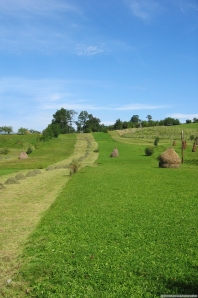QUANTUM PHYSICS AND GOD
Science as a discipline often eluded me in school. Basic botany and geology were OK; I was good at memorizing Latin names and identifying basic stone and strata. However, my mind would begin to spin and whirl at the thought of light years and black holes, the calibration of physics, complex chemical compounds, and the formulas that made up the anatomy of well, everything.
Yet while I couldn’t quite grasp these ideas, they intrigued and fascinated me. Why do things do what they do? How do they do them? What is out there? What is in here? In the last hundred years, we have taken giant leaps in understanding and explaining a bit of the workings of this wide and wonderful universe of ours. As a theologian, I guess you could say that I was born at a good time in the evolution of science. These discoveries have also come to inform and inspire running streams and rivulets of conversation in religion. For that, I am truly grateful.
As Rebecca Parker comments in her book A House for Hope, “Up until the birth of relativity theory and quantum physics, Western science conceived of the “stuff” of reality as tiny bits of hard matter that built up into structures from atoms to rocks….at it’s foundation, the “real world” was formed from an aggregation of atoms…in keeping with this scientific worldview, God’s reality was imagined to itself be like that of an ordinary rock: solid, unfeeling, unchanging, able to affect other things, but not itself affected.”
 Today we live in a world of complexity that has taken us beyond many of the predictable concepts that Sir Issac Newton put forth. Atoms, DNA, the building blocks of our universe are not static pieces of matter after all but rather ever-moving infinitesimal activities. Parker says, “Science now reveals to us a world that is relational, interactive, codeterminate, chaotic, intermittent, and ever-changing.”
Today we live in a world of complexity that has taken us beyond many of the predictable concepts that Sir Issac Newton put forth. Atoms, DNA, the building blocks of our universe are not static pieces of matter after all but rather ever-moving infinitesimal activities. Parker says, “Science now reveals to us a world that is relational, interactive, codeterminate, chaotic, intermittent, and ever-changing.”
Through the ongoing work of science, religion is enriched and provided with new and life affirming paradigms to re-imagine concepts about God. Theologies do not necessarily need to be taken down to their bare studs. Rather they can be renovated in a way that creates space to include more people of diverse backgrounds and ideologies. For instance, if God’s qualities reflect what quantum physics is telling us about the nature of the universe, then God is not just Creator, but the Creative Process itself. Codeterminate, Relational, and Perennial Changing can be ways of thinking about God. These kinds of attributes will expand our connections with others and with God without limiting God within a doctrine or dogma.
 If we find that we have outgrown some of our older, more cumbersome theological “apparel”, we can cast off the worn out and oppressive garments that have sometimes served to divide us, weigh us down, or competitively identify our religious “team” without fear of recrimination. Instead, like the constant and lively movement of all matter, we too will make room to move and be moved. Theologies CAN be fluid enough to not mandate uniformity or require a litmus test of identical creedal statements. Instead, our faith can settle into uncertainty and be surprised by new discoveries. We contain DNA like both rock and tree, and we too can be steady and strong in the storm while adapting to locate shelter and shade in the seasons that blister and to steer towards clear open light when darkness pervades.
If we find that we have outgrown some of our older, more cumbersome theological “apparel”, we can cast off the worn out and oppressive garments that have sometimes served to divide us, weigh us down, or competitively identify our religious “team” without fear of recrimination. Instead, like the constant and lively movement of all matter, we too will make room to move and be moved. Theologies CAN be fluid enough to not mandate uniformity or require a litmus test of identical creedal statements. Instead, our faith can settle into uncertainty and be surprised by new discoveries. We contain DNA like both rock and tree, and we too can be steady and strong in the storm while adapting to locate shelter and shade in the seasons that blister and to steer towards clear open light when darkness pervades.
I affirm the slogan of the United Church of Christ, “God is still speaking.” And we are still asking questions. In this manner, both science and religion will continue to grow and flourish.
